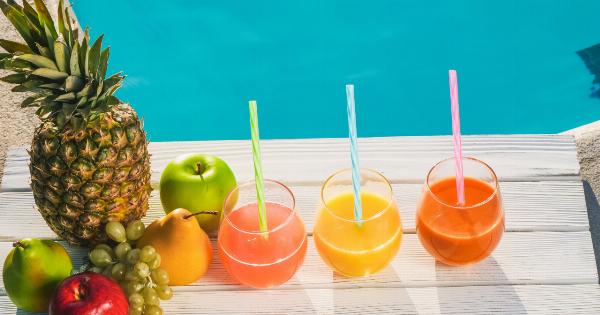The holiday season is often filled with festivities, food, and drink. Unfortunately, these indulgences can have a negative impact on our health, including our cholesterol levels.
In this article, we will explore how holidays affect cholesterol levels and what steps you can take to stay healthy and maintain your cholesterol levels during the holiday season.
What is Cholesterol?
Cholesterol is a waxy, fat-like substance found in every cell of the body. It plays an essential role in the production of hormones, vitamin D, and bile acids that help digest food.
Our bodies produce cholesterol, but we also obtain it from the foods we eat, such as animal products like meat, cheese, and eggs.
Types of Cholesterol
There are two types of cholesterol – low-density lipoprotein (LDL) and high-density lipoprotein (HDL).
LDL cholesterol is often referred to as “bad” cholesterol because it can build up on artery walls, leading to the formation of plaque and increasing the risk of heart disease. HDL cholesterol is often referred to as “good” cholesterol because it helps remove LDL cholesterol from the bloodstream and reduce the risk of heart disease.
How Holidays Affect Cholesterol Levels
During the holidays, we tend to indulge in foods that are high in saturated and trans fats, such as turkey with gravy, mashed potatoes, stuffing, and desserts.
Excessive consumption of these foods can increase our LDL cholesterol levels and contribute to weight gain, which can also increase cholesterol levels.
Alcohol consumption during the holiday season can also impact cholesterol levels. Heavy alcohol consumption can increase triglyceride levels, which can contribute to high cholesterol levels.
High sugar content in many holiday cocktails can also put a strain on the liver, which can affect cholesterol metabolism and contribute to increased cholesterol levels.
How to Keep Your Cholesterol Levels in Check During the Holidays
Fortunately, there are steps you can take to maintain your cholesterol levels during the holiday season:.
1. Be Mindful of Portions
It’s essential to be mindful of portion sizes during the holiday season. Try using smaller plates to help control portion sizes and avoid going back for seconds. Fill your plate with non-starchy veggies, lean proteins, and complex carbohydrates.
2. Choose Healthy Fats
Instead of consuming foods high in unhealthy saturated and trans fats, choose foods that contain healthy fats, such as monounsaturated and polyunsaturated fats found in nuts, seeds, avocado, and fatty fish like salmon.
These healthy fats can help increase your HDL cholesterol levels and reduce LDL cholesterol levels.
3. Limit Your Alcohol Intake
Limit your alcohol consumption during the holiday season. Stick to one or two drinks per day and choose low-sugar options like red wine or spirits mixed with a low-calorie mixer.
4. Make Healthy Swaps
Make healthy food swaps when possible. For example, instead of traditional mashed potatoes made with cream and butter, try making mashed sweet potatoes with a little bit of olive oil and spice.
Swap desserts made with refined sugar and white flour for healthier options like fresh fruit salads or baked apples.
5. Stay Active
Stay active during the holiday season. Regular activity can help maintain healthy cholesterol levels. Try going for a walk after meals or joining a holiday fitness class with friends or family.
Conclusion
The holiday season can be a challenging time to maintain healthy cholesterol levels, but with careful planning and mindfulness, it is possible.
Be mindful of portion sizes, choose healthy fats, limit your alcohol intake, make healthy food swaps, and stay active. Taking these steps will help you enjoy the holiday season without negatively impacting your cholesterol levels.






























